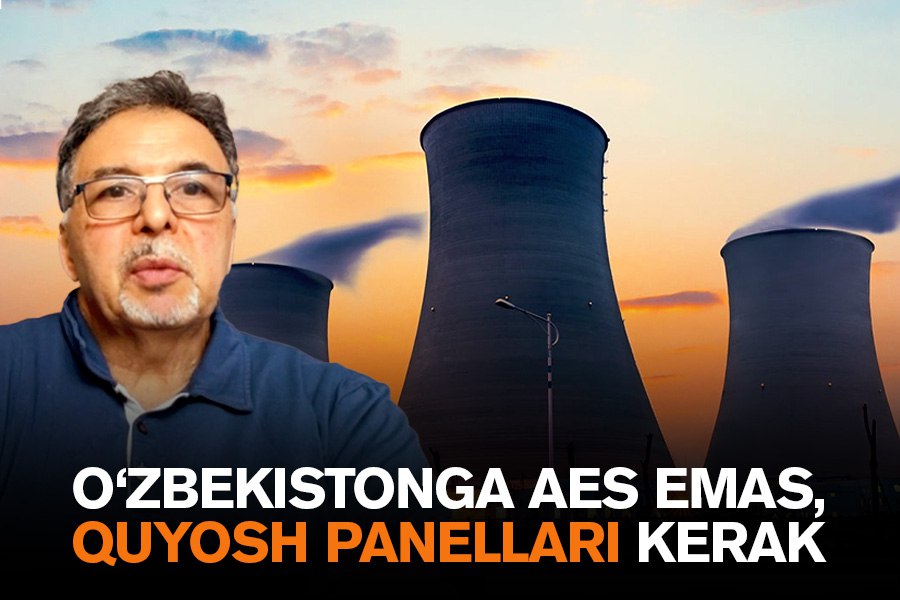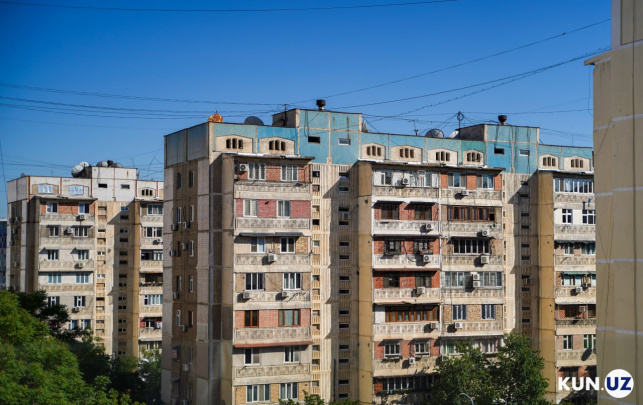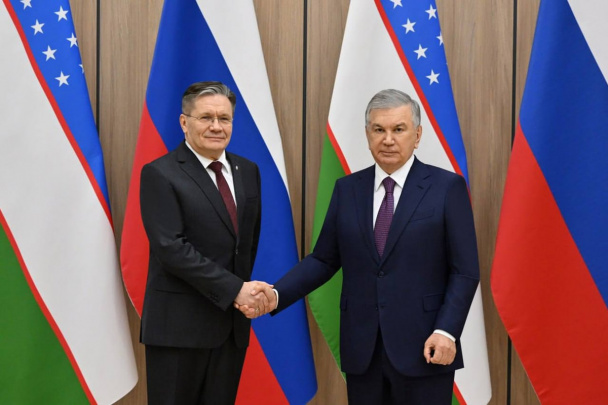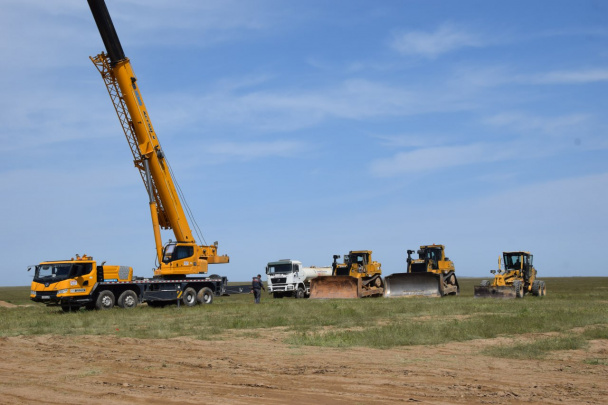“NPP construction has no economic prospects in Uzbekistan” – An interview with Alisher Ilkhomov
Alisher Ilkhomov, director of the analysis center in London, says that solar panels will better solve the problem of energy shortage in Uzbekistan than expensive and inefficient nuclear power plants. In an interview with Kun.uz, he expressed his concern that the NPP built by Russia will be a burden on Uzbekistan. Generations will “pay” for it, he said.

In 2017, efforts to build a nuclear power plant in cooperation with Russia began in Uzbekistan. In the same year, the governments of Russia and Uzbekistan signed an agreement on the peaceful use of nuclear energy.
Although the signing of the main multi-billion dollar deal is delayed, government officials say that the plan has not been abandoned and that negotiations are ongoing. This political project is presented as an important factor for solving the country’s energy problem.
Alisher Ilkhomov, director of the “Central Asia Due Diligence” analysis center in London, spoke to Kun.uz about the economic inefficiency of the NPP and other factors.
“Prolonged project confirms suspicions”
- In my opinion, the project to build NPP was not an initiative of Uzbekistan. That is, pressure was exerted by Moscow on this matter, the project was advanced by Moscow. Until then, there was a rather critical approach to the NPP construction. It seems that the Uzbek government could not refuse for some reason. It is difficult to say exactly what reasons played a role here. But now the project is being delayed. So, it confirms that there are doubts about how beneficial this project is for Uzbekistan.
From the beginning, it was clear that this project was not profitable. And this is not only related to the safety of nuclear energy. Considering what happened in Japan, Ukraine, such potential accidents would have a very large negative impact on the country as a whole. But I have doubts about the economic efficiency of this project. The construction of nuclear power plants is completely ineffective from an economic point of view. First of all, the project requires a lot of money. In 2019, when the first rumors about the project began, the station was planned to be commissioned in 2028. But considering that construction has not yet started, it could start in the early 2030s. The cost of the project is estimated at around $9 billion. However, as I said before, usually at the project stage, contractors, executors understate the value, and then increase the price using various excuses. After the practical process begins, it will be difficult to refuse their request, because after the start of the work, Uzbekistan will depend on them and will have spent a certain amount.
“Alternative energy is twice as cheap as NPP”
- Judging by the price offered by Rosatom, there are other valuable energy sources in the country. According to 2019 data, 1 megawatt of nuclear power costs $160. It is several times more expensive than gas and alternative energy types. Currently, Uzbekistan is experiencing an energy crisis in terms of household supply and local industrial interests. More than 50 billion cubic meters of gas are produced in Uzbekistan. It should actually be sufficient for domestic needs and exports.
From an economic point of view, the production of one kilowatt of nuclear energy is several times more expensive than the extraction of the same amount of gas and renewable energy sources.
Looking at 2021 data, it currently costs less than 100 cents for households to get 1 megawatt of solar energy.
The price of gas has not changed in the last year. But now gas prices have risen sharply. And the cost of renewable energy remains the same, even if it has decreased. Last year, the cost of a megawatt of solar power for households fell, and the price continues to fall. In this case, solar panels are installed on the roof, batteries are taken for storage. The price is higher at major stations. Considering that the price of gas has gone up now, there is almost a double difference between gas and solar.
“Solar panels will solve the problem of energy shortage better than NPP”
- According to statistics from a few years ago, solar panels were installed in about 40,000 households in Great Britain. According to the latest data, about one million households in the country use these panels. However, sunny days in Britain are much less than in Uzbekistan. The analyses show that there are 300 days of sunny weather in Uzbekistan during the year. That is, solar energy can be obtained during this period.
In the past, the disadvantage of solar energy was that the sun would not rise every day and the energy would be unavailable. Currently, energy storage technologies are being developed. Energy can be stored for a long time using accumulator batteries.
Amazon offers a variety of solar panels. For example, there are panels for charging a smartphone, a power bank, for camping and traveling. For households, a panel can be purchased for around £1,000. Installing the complete kit and powering the house will cost around £4,000, plus the cost of the battery pack.
Such investments should be made by governments as well as households. In Britain, there is a program aimed at providing grants for the installation of panels in households. This will greatly reduce the cost of the project. Installing solar panels on your home will incur an upfront cost, but it will pay for itself in the short term. You can be a self-sustaining independent entity. Considering that almost every year there is a crisis situation in the supply of energy, you will be free from power interruptions.
I think the government has adopted a program in this regard, the station, solar panels are being built on a large area. But I haven’t seen any progress to provide for households.
Households, agriculture and state institutions account for 60% of energy consumption in Uzbekistan. Households account for about 26% of consumption. At least not 26%, so it would be easier to provide half of it with alternative energy. It is easier to do this in private apartments. The owner of the house himself decides and installs on the roof. In multi-family houses, it is a little more complicated, because everyone has to agree, and the cost has to be shared. But not everyone can afford it.
If there is a program that provides logistics, sales, quality assurance and financial support, private houses, especially in rural areas, can do this in the agriculture itself. That is, the government should provide grants covering 20-30% of the cost of solar panels and batteries.
Such strategies should be implemented. This will solve the problems related to the current crisis situation. It creates a real alternative to nuclear power. NPP can add only 10-15% to the total energy balance. If the households install the panels themselves, the balance can be covered by at least 20%. Panels solve the problem of energy shortage better than NPP.
We do not see any economic analyzes by the government or think tanks on how much this or that option will cost. It is necessary to consider the strategies by analyzing the priority directions from the economic point of view.
“NPP construction has no economic prospects”
- I have no information on why the work is being delayed. It all comes down to economics. The government has doubts about the effectiveness of the project. Discussions are going on inside. Because this is a political decision on the one hand. There were also political reasons for the approval of the NPP construction. Year by year, socio-economic problems are getting more tense. Governments should be able to properly prioritize funding for various projects. Analyzes should be conducted on which option is the most effective from the point of view of the energy issue.
From an economic point of view, the NPP construction has no prospects. This will place a burden on Uzbekistan, and the next generation will have to pay compensation.
“Marketing Game”: Once the project starts, the prices will be increased
- This is a common practice. Even if there is some economic or technical basis, when construction begins on a large project, unexpected situations begin to arise during the process. For example, component prices may increase, force majeure may occur. For various reasons, the contractor increases the price. The contracting state has no choice but to accept. This is not only related to Rosatom, it is also observed in the West. When a big project starts, things change during the process.
Again, the cost of deactivation should also be considered. That is, deactivating the station after the work is completed also requires a cost. This means a cost of around 10-15% of the construction. This will also cause great damage to the environment. These aspects are not taken into account. They should not be ignored, they should be justified.
“The ecological factor shouldn’t be forgotten”
- Even if the safety of NPP is fully guaranteed, it is impossible to reduce the probability of accidents to zero. It is still not environmentally friendly compared to solar or wind energy. Focusing on renewable energy as a priority will have a much higher climate impact than nuclear power. During the NPP construction, the water basin will have to be surrounded. Uranium must be cooled after processing. This is done in the reservoir, that is, in Aydarkul. In this case, there is a possibility of water damage.
Such cases have been observed in practice. In France, although there were no major accidents like in Japan, Ukraine, there were cases of damage to the surrounding water basins. Taking into account that water basins are a very important resource for Uzbekistan, moreover, such possibilities should also be taken into account during the analyzes against the background of the water shortage problem.
“Several countries are abandoning the use of NPP”
- Germany and other countries abandoned the NPP construction. The working ones were also closed. They had no economic reasons. This is mainly due to the accident in Fukushima. Although it has been working for a long time and is producing energy, they chose this path because of the disaster risk.
The U.S.A. is a very large area, and stations can be located far from populated areas. Therefore, in this regard, the territory of the country, the population density, and the NPP location should also be taken into account. In Uzbekistan, of course, there are uninhabited desert zones. But the station requires a reservoir. Aydarkul is such a source. The construction of an NPP poses a risk to this water body.
Population density, station proximity to water bodies should be taken into account. It is very dangerous from the point of view of deactivation of uranium processed at the station in Uzbekistan.
“The crisis will bring the question of NPP to a new level”
- I would like to emphasize once again that the issue of NPP construction should be considered from the point of view of the current energy crisis. The President went to the houses and got acquainted with the situation. The crisis is repeated every year. In this regard, the question of adopting any strategy is unclear. The problem is that the government is investing in large stations, but there is no project to implement alternative energy in households. This brings to a new level the issue of NPP, which is uncertain when it will be built.
If at least part of the apartments are provided, the problem can be solved in self-sufficient houses in a maximum of 5 years. I don’t have exact calculations on this. It is necessary to analyze the its step-by-step implementation. It is necessary to implement this program for farms, households, state institutions, schools.
Related News

17:40 / 07.05.2025
France to allocate €30 million for green housing renovations in Uzbekistan

19:31 / 28.04.2025
Uzbekistan and Rosatom deepen nuclear ties, first small plant construction set to begin

17:41 / 23.04.2025
China’s Shanghai Electric may provide turbines for Uzbekistan’s nuclear plant

13:43 / 16.04.2025



